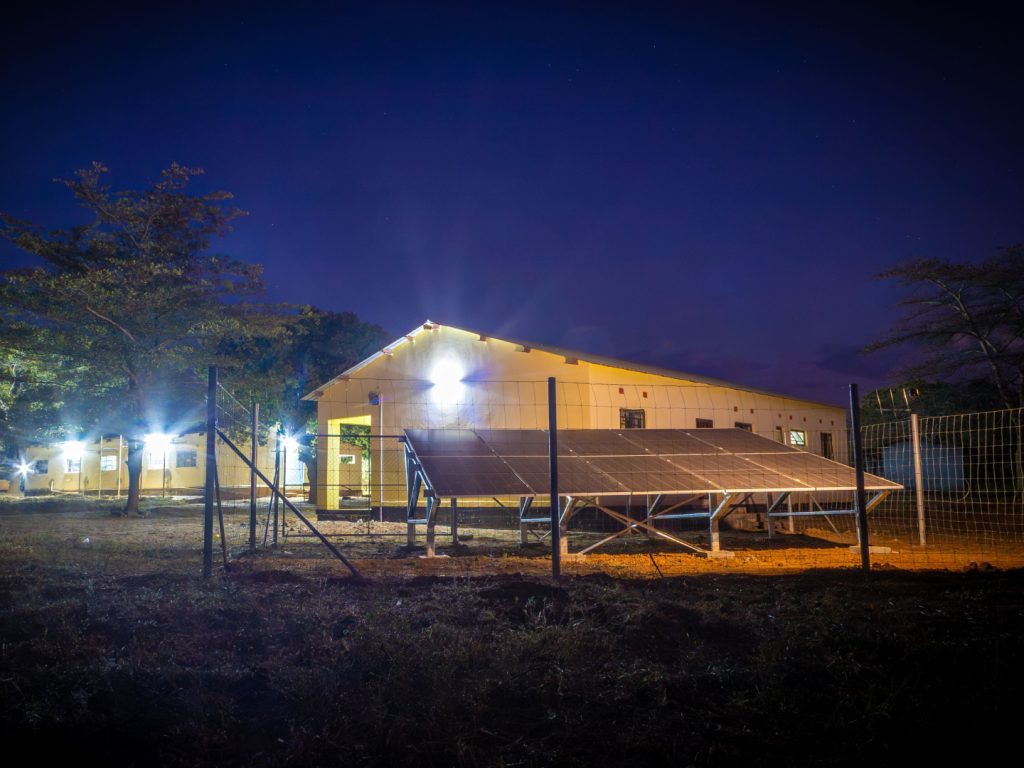Generation

Zambia's Solar energy, to power 250 rural healthcare facilities

The country’s Ministry of Health in collaboration with Gavi (the Vaccine Alliance), UNICEF and the World Health Organisation (WHO) officially launched two initiatives designed to “strengthen health systems, advance equitable access to vaccines, and improve primary healthcare delivery across the country.”
The launch event was presided over by the Minister of Health Dr Elijah Muchima, Gavi CEO Dr Sania Nishtar and the UNICEF Country Representative, representing the UN in Zambia, Dr Nejmudin Kedir Bilal.
District health leadership, community members and key implementing partners also attended the ceremony. UNICEF made the announcement of the collaboration on Sunday (24 August).
“These initiatives improve the way Zambia delivers healthcare. By bringing sustainable power to our rural health facilities and ensuring vaccines and essential medicines reach every child, we are investing in healthier communities and a stronger health system,” said Muchima.
Under the slogan Powering Health, Empowering Communities, Gavi’s Health Facility Solar Electrification (HFSE) project aims at transforming the health sector, solarising health facilities in rural Zambia, said UNICEF.
“With funding from Gavi and in close collaboration with the Ministry of Health, UNICEF and WHO, this initiative brings reliable, clean energy to health facilities that have long operated without or with limited access to electricity,” said UNICEF.
Nishtar said that the launch of Zambia’s solar electrification project, “bringing clean energy to 250 health facilities and reaching 1.3 million people, alongside the DRIVE initiative in 41 districts, is a turning point for health equity.”
“These efforts will light up maternity wards, keep vaccines safe, and deliver care to the hardest-to-reach communities. They will also create over 200 jobs, showing how smart health investments can uplift lives and livelihoods. Zambia is showing what leadership looks like.”
With a commitment of approximately $28 million in funding, the HFSE initiative is designed to deploy 5 to 8kWp solar PV systems and cold chain equipment (CCE) in 1,277 health facilities across four countries: Zambia, Ethiopia, Pakistan and Uganda.
Solar-powered cold chain equipment rollout
UNICEF said Gavi has contributed significantly to the rollout of solar-powered cold chain equipment through the Cold Chain Equipment Optimisation Platform (CCEOP).
“However, fridges alone aren’t enough. This pilot tests whether that model can be scaled to fully solarise health facilities by powering lights, equipment and digital tools. If successful, it could unlock co-investment and long-term government support for maintenance, ensuring sustainability,” said UNICEF.
In Zambia, 250 healthcare facilities in 95 districts will be electrified under the HFSE project, prioritising off-grid facilities that provide maternity services and serve remote communities.
“This will ensure safe storage of vaccines and medicines, enable critical diagnostic and medical equipment, improve working conditions for health professionals and strengthen resilience and equity in primary health care services,” said UNICEF.
UNICEF said the GAVI project covering the four countries is slated to be completed by June 2026.
“Once the project is complete, an estimated 25 million people living in the catchment areas of the newly solarised health facilities will benefit from an increased range of services such as expanded access to immunisation services and availability of clean water. This includes 1.3 million people in Zambia.”
Zambia’s immunisation drive
“Today, more than 90% of children receive the full set of DTP 3 vaccines. But challenges remain. Some districts still lag behind, and the way vaccines and supplies are distributed within the country is one of the weakest parts of the system. This often leads to shortages or near shortages in many health facilities,” said UNICEF.
The Direct Delivery of Routine Immunisation Vaccines and other Essential health commodities for Equity (DRIVE) Initiative is a new and innovative approach to improving vaccine delivery in Zambia.
It works like a social enterprise, involving community volunteers, young people and others at the local level to help deliver vaccines and health supplies directly to clinics and outreach sites.
UNICEF said these delivery partners will work up to 10 days a month transporting vaccines.
And for the rest of the month they can use the same transport to earn income through other activities, helping them support themselves and maintain the vehicles.
Securing the cold chain supply
DRIVE is starting in 41 districts, creating 200 jobs. This will ensure vaccines and essential health supplies reach every clinic reliably and on time and also help health worker get to outreach sites without delays.
“The two initiatives we are launching today work hand in hand to strengthen our health system. By bringing vaccines and supplies directly to health centres and providing clean, reliable energy, we are making healthcare more accessible and consistent.
“These efforts support health workers, create jobs, build community ownership, and help us adapt to climate challenges,” said Bilal.
Both HFSE and DRIVE directly support Zambia’s progress towards the Immunisation Agenda 2030 and the Sustainable Development Goals (SDGs), ensuring no child or community is left behind in the journey towards universal health coverage, said UNICEF.












